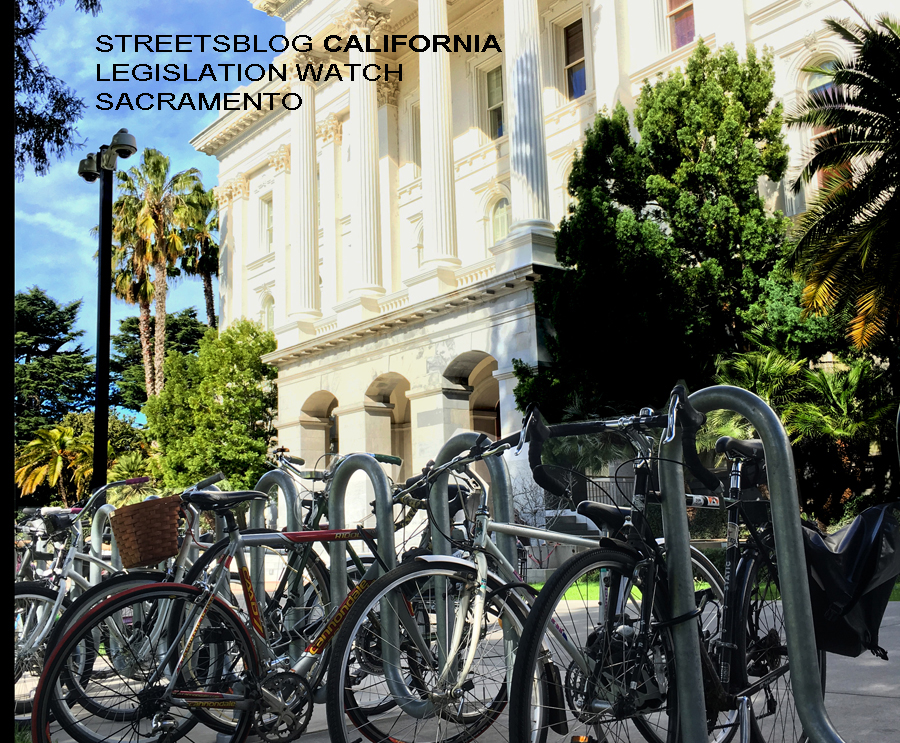Note: GJEL Accident Attorneys regularly sponsors coverage on Streetsblog San Francisco and Streetsblog California. Unless noted in the story, GJEL Accident Attorneys is not consulted for the content or editorial direction of the sponsored content.
Deep concerns about what might happen when the state lifts its temporary ban on evictions is producing some movement on the policy front. This week, the state's Judicial Council declined to lift the temporary eviction moratorium. And an Assembly bill was introduced that would codify eviction protections beyond the judicial ban on serving eviction notices.
As described in a UCLA report summarized here, the current moratorium only prevents landlords from serving a summons on a tenant who hasn't paid rent. Once the ban is lifted, hundreds of thousands of tenants who have lost income and can't pay rent could be served, and once those summonses are issued evictions can happen quickly. See the report for more details.
Few would argue that turfing people from their homes during a pandemic would be a good thing. On top of that, the number of households at risk gives pause, even if there were no pandemic - and maybe even if there were no protesting in the streets.
But the new attention on injustices imposed on Black and brown people highlights an even uglier fact: that the people most at risk of eviction are those poor and low-income communities of color who were already struggling to pay rent under the twin burdens of low wages and high rents.
The Judicial Council, which oversees state courts, suspended a planned vote to rescind the moratorium because, according to Chief Justice Tina Cantil-Sakauye, "the executive and legislative branches will need more time to sort through various policy proposals."
Some of the wording on the council's website suggests that the moratoriums were put in place to avoid burdening the judicial system rather than to allow people to shelter in place. Perhaps they were thinking that, as courts move towards restarting sessions, the eviction process could start up again as well.
According to court documents [PDF]:
Both rules [banning eviction and foreclosure proceedings] are currently in effect for the duration of the state of emergency and 90 days thereafter. The chairs of the Judicial Council’s six internal committees note the Legislature is currently reviewing these issues and now propose that the council amend emergency rules 1 and 2 so that they will sunset on August 3, 2020.
(At the same meeting, the council also voted to rescind temporary bail rules, which reduced bail to $0 for minor offenses in an attempt to curb the spread of COVID in jails, starting June 20.)
Meanwhile, one of the policy proposals being considered is A.B. 1436, from Assemblymember David Chiu (D-San Francisco), which would ban evictions, not just summonses, for nonpayment of rent during the pandemic. The timing of the ban is tied to the ongoing state of emergency, as declared by the governor, and the same as the judiciary's bans on serving eviction summonses: until ninety days after the state of emergency is lifted.
The bill would also give tenants fifteen months to pay back rent, preventing credit or default actions against them for failure to pay during that time. It would also disallow the use of the unlawful detainer clause - which defines "continuing to possess the property without permission of the landlord after defaulting on rent" as illegal and subject to court proceedings - in the case of a tenant who can't pay rent during COVID.
The bill's sponsors say the idea is to protect renters from mass evictions, in part by separating eviction - a court proceeding - from rent. They aim to create a legal framework for the repayment of rent that is fair to tenants and landlords.
The bill has a long roster of co-authors, signaling strong support for its provisions. Since it was amended heavily from its original text, it will not have a legislative hearing until July.
Chiu, the bill's author, said, “California simply cannot afford a wave of mass evictions. Doing nothing means millions could potentially be forced into homelessness. We are stepping in to keep tenants in their homes while allowing landlords to collect past due rent in a reasonable way.”






